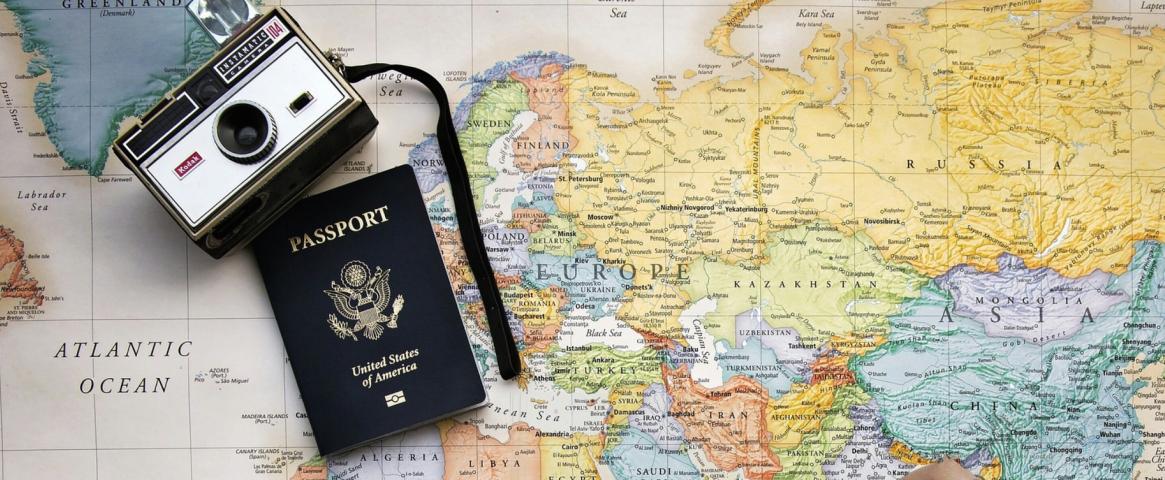By Jennifer DeMoss
Have you ever dreamed of having an editor assign you a reporting trip? A session at ScienceWriters2019 helped writers figure out how to pitch and plan an assignment that includes travel.
“Itching to travel: The nuts and bolts of the coveted reporting trip,” was moderated by freelance journalist Emily Sohn. The panelists were Apoorva Mandavilli, editor-in-chief of Spectrum; Wudan Yan, a freelance journalist; Kevin Krajick, senior editor for science news at Columbia University's Earth Institute; Hillary Rosner; a freelance journalist and contributing editor at bioGraphic; and Dean Robinson, story editor for The New York Times Magazine.
How do people get travel assignments in the first place? When deciding to approve a reporting trip, Mandeville said “the bar is higher” than for other pitches. The pitch has to prove that the request is reasonable, and will deliver benefits that reporting from home would not. At bioGraphic, Rosner wants to see that a writer has a backup plan and an idea of who they might talk to. Yan, who traveled to Southeast Asia on a Pulitzer Center Reporting Grant, said that in her pitches for travel, “I should have already created some compelling scene or person or characters I’m going to follow around … if I do a good job, the case for going on the ground should be pretty clear.” She also suggested researching reporting grants to fund at least some part of a trip.
Another tactic is to piggyback on a trip you’re already planning to take. When Rosner traveled to Boston and Costa Rica, she found stories to report and was able to ask The New York Times to cover expenses like an extra night at a hotel. Although she didn’t suggest doing it often, Yan said that sometimes she follows her curiosity when she’s traveling and reports on additional stories without pitching them first. “Capitalize on where you are and what’s going on around you,” suggested Rosner.
What are the logistical considerations? Don’t be shy about asking for enough money to cover expenses. Particularly not to The New York Times Magazine—Robinson said that if the editors want a story they’re willing to pay for travel to get it. Visas and plane tickets are familiar expenses, but having a fixer—someone who helps a reporter navigate an unfamiliar country, including finding sources and translating interviews—can be expensive and necessary. And, as Yan noted, “You might have to pay for security, and you can’t go cheaper or you might die.” Be realistic about what the trip actually costs, and keep your receipts.
What about staying safe once you’ve got the travel assignment? Krajick gave a compelling reason to work with resourceful and capable guides: while skiing across Canada's Yukon region, he traveled with a glacier guide who saved him from sliding into a moat. Yan, who works in post-conflict zones, seeks out trustworthy companions who help her find safe hotels and deal with law enforcement. She suggested taking first aid and hostile environment training.
One last thing to note—the tools that serve for local reporting might be less useful on a trip far from home. Krajick and Mandavilli don’t use laptops for reporting, since it can draw attention to wealth disparities and indicate the reporter is an outsider. Audio recorders might not be feasible, and Mandavilli uses a Livescribe pen and notebook. Krajick added that ballpoint pens don’t work in very cold weather, so he uses pencils to take notes and relies on a small camera.
The panelists shared a wealth of knowledge about reporting from the field. Follow them and ask questions at:
Hillary Rosner @hillaryrosner
Wudan Yan @wudanyan
Apoorva Mandavilli @apoorva_nyc
Emily Sohn @tidepoolsinc
Jennifer DeMoss is a graduate student in cultural anthropology at the University of Georgia and a recipient of a 2019 NASW Travel Fellowship. Follow her on Twitter at @JennADeMoss

